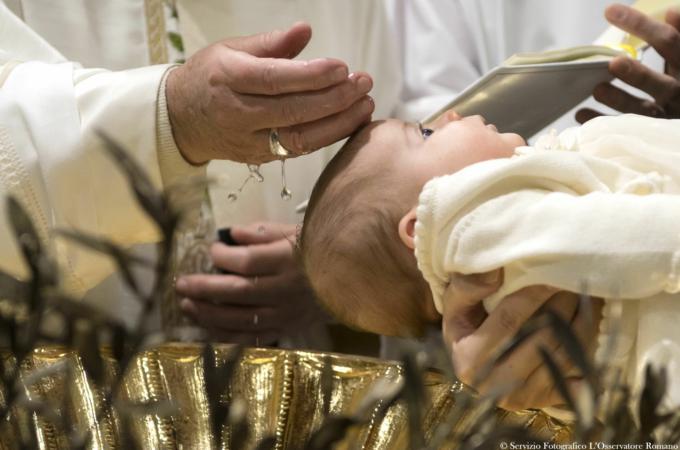Grandparent as baptismal sponsor?
Q. Both my daughter and I left the church some years back, although for different reasons. I returned to regular practice about a year and a half ago, and my daughter is thinking of returning as well.
She is a single mom, with two children -- ages 6 and 12 -- and she would like them to be baptized. (I have been trying to teach them about the Catholic faith.)
Our problem is that we have no other family, and our friends are not Catholic. Is it possible that I can be their godmother, even though I am also their grandmother? (Taylorsville, Kentucky)
A. I am delighted to hear of your return to the sacramental practice of the Catholic faith and to the support this offers you in living the Christian life. Note, too, the "multiplier effect" -- I can only believe that your own journey back has served as an example for your daughter, and now her two children will be raised as Catholics as well!
In answer to your question, yes -- you yourself may certainly be the sponsor (godparent) for your grandchildren's baptisms. A father or mother may not serve as a godparent for their own child (Canon 874 of the church's Code of Canon Law), but there is no such rule prohibiting grandparents. The role of the sponsor is to "help the baptized person to lead a Christian life in keeping with baptism and to fulfill faithfully the obligations inherent in it," and I am sure you would do this well (Canon 872).
(The only downside I can see in a grandparent's being a godparent is this: If the parents were to pass on or to be incapacitated in some way, a godparent is meant to serve as a "stand-in," mentoring and assuring the continued Catholic life of the child -- so I suppose that the younger the godparent/grandparent is, the better!)
Q. I enjoy reading your columns in our diocesan newspaper. Recently you responded to a person who is concerned about missing Mass due to agoraphobia. (Editor's note: Agoraphobia is defined as an extreme or irrational fear of crowded spaces or enclosed public places.)
As a psychiatrist, I wish you would have added that agoraphobia is a very treatable condition, using medication or a specific kind of therapy called cognitive behavioral therapy (CBT), which can help a person manage anxiety in public settings such as Mass. In addition to discussing the situation with a priest, the person who wrote may seek treatment with a doctor or a therapist with skills in CBT.
(Since the writer is seeking to participate more fully in worship and the sacraments, I have to believe that God will smile on the work he or she does with a medical professional to achieve that!) (Columbus, Ohio)
Q. I was delighted to read your column about agoraphobia. It is nice to know that you are not alone, that others are dealing with similar issues. I have panic/anxiety problems and, when I told a deacon that I was unable to attend weekend Masses because of the large number of people present, he suggested that I attend Mass instead on a weekday. (Actually, I now go on more than one weekday!)
It is a great relief to feel comfortable while praying at Mass and not have to focus on fighting feelings of panic. Thank you for addressing this, and I am sure it will help others as well. (City of origin withheld.)
A. The two letters above are indicative of the responses that are received daily, commenting on this column. Often enough, these comments contain additional information that may be helpful to some readers.
Here, the first letter serves as an important reminder that God works in many ways -- often through the efforts of skilled professionals. When medical help is available, one is wise and well-advised to seek it. The second letter may be of comfort simply by assuring readers that they are never alone in dealing with particular challenges.
- - -
Questions may be sent to Father Kenneth Doyle at askfatherdoyle@gmail.com and 30 Columbia Circle Dr., Albany, New York 12203.
- Father Kenneth Doyle is a columnist for Catholic News Service



















